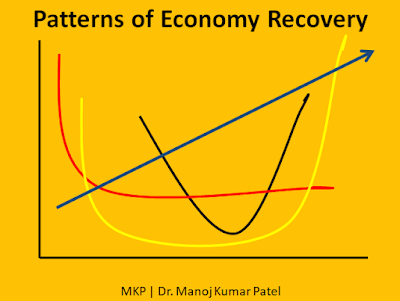Drug, meditation, detachment and happiness
Ronan was scrolling down through the
posts on the Instagram site to kill boredom while waiting in the boarding
lounge at the airport. His scrolling stopped at the view of one of the posts.
It was a seductive photograph posted by a damsel. Ronan stopped stupefied for a
couple of seconds to quench his obsession with the attraction of his mind
before scrolling down further. He noticed there are seven more photographs
posted in the same post. Impulsively, Ronan swiped his mobile screen to the
left to view more photographs of the woman, one after another. But by the time
he reached the fifth photograph, his excitement to see the next sixth and the
seventh photographs waned. He stopped there and scrolled down to view other
posts on Instagram.
It is interesting to note that while Ronan found the first photograph irresistible, his interest declined as he moved to view the subsequent photographs. And after the fifth one, he gave up.
We
call this behavior of consumer as the – law of diminishing marginal utility.
Technically it is defined as – the reduction in satisfaction as the consumer
consumes more and more units of the same product. This is how the people are
getting sued and attracted to newer materials in pursuit of products to satisfy
their never quenching needs of senses.
A cigarette that gave a kick yesterday will not give the same kick when it is
consumed next, and so on. So the biochemical pursuit of happiness through the
consumption of newer materials is taking humankind from one step down each day.
And drugs are just the beginning. Drugs and meditation do the same thing to the
human brain. It detaches the physical body and makes the soul free and
painless. But the very fact that human beings are lazy by nature, it seeks
easier and effortless ways to get detached from their surroundings. So drugs
come as an easy way to attain that stage, while meditation needs serene
atmospheres. And when wealth is available in plenty the human beings go for
drugs rather than meditations.
Meditation
is a single step process to get detached from the surroundings and attain
transcendental peace.
ये हि संस्पर्शजा भोगा दु:खयोनय एव ते | आद्यन्तवन्त: कौन्तेय न तेषु रमते बुध: || 22|| (ye
hi sansparśha-jā bhogā duḥkha-yonaya eva te ādyantavantaḥ kaunteya
na teṣhu ramate budhaḥ).
The enjoyments that are born of contacts are only generators of pain, for they have a beginning and an end. The wise do not rejoice them.
The
senses create sensations of pleasure in contact with the sense objects. The
mind, which is like the sixth sense, derives pleasure from honor, praise,
circumstances, success, etc. All these pleasures of body and mind are known as bhog (material enjoyment). Such worldly pleasures
cannot satisfy the soul for the following reasons:
Worldly
pleasures are finite, and hence the feeling of deficiency remains inherent in
them. One may feel happiness on becoming a millionaire, but the same
millionaire becomes discontented on seeing a billionaire, and thinks, “If only
I also had one billion, then I too would be happy.” In contrast, the bliss of
God is infinite, and so it gives complete satisfaction.
Worldly
pleasures are temporary. Once they finish, they again leave one with the
feeling of misery. For example, an alcoholic enjoys the pleasure of drinking
alcohol at night, but the next morning, the hangover gives him a splitting
headache. However, the bliss of God is eternal, and once attained, it remains
forever.
Worldly
pleasures are insentient, and hence they continuously decrease. When people see
a new Academy Award prize-winning movie, they are overjoyed, but if they have
to see the movie a second time to give company to a friend, their joy dries up.
And if a second friend insists that they see it a third time, they say, “Give
me any punishment, but don’t ask me to see that movie again.” The pleasure of
material objects keeps decreasing as we enjoy it. In Economics, this is defined
as the Law of Diminishing Returns. But the bliss of God is sentient; it is sat-chit-ānand (eternal ever-fresh divine bliss). Hence, one
can go on chanting the same divine Name of God all day long and relish ever-new
devotional satisfaction in it.
No sane person enjoying a delicious dessert would be willing to give it up and eat
mud instead. Similarly, when one begins to enjoy divine bliss, the mind loses
all taste for material pleasures. Those endowed with the faculty of
discrimination understand the above three drawbacks of material pleasures and
restrain their senses from them.
But to many of the present-day youngsters, the ways to be followed by reading Gita is stale. For them, variety is the spice of life. And drugs come in varieties. Drugs are just the beginning. In research laboratories, experts are already working on more sophisticated ways of manipulating human biochemistry, such as sending direct electrical stimuli to appropriate spots in the brain. The recent news that a music system is now being developed by Elon Musk will make the music reaches directly to the brain. (Elon Musk founded neural tech company Neuralink in 2016. In 2019, the company showcased the technology it's developing — a chip connected to wires which fan out into the human brain, capable of both recording brain activity and stimulating it.) No headphones, no external sound generating systems. Crazy, that is the best we may say, though the developments are taking place in the name of science and technology to provide happiness to the never-satisfied human beings.
Quenching the fire by putting different types of fuels only intensifies the fire. So human beings are now trying to generate stimuli and then finding external materials like drugs and chemicals to satiate those stimuli.
To attain real happiness, humans need to slow down the pursuit of pleasant sensations, not accelerate it. The law of diminishing utility works in all our experiences, and the very thing that gave a certain satisfactory unit of joy in the beginning, itself soon becomes a stinking putrefying pit of sorrow.
Man, if he is wise, is satisfied only with the infinite. Finite things like nicotine, cocaine, marijuana, hashish, wine, and mates can only burn one with hopes of getting more satisfactory joy, and whip humans along the path of sensuousness making them pant in sheer exhaustion: from ditch to ditch, from the gutter to gutter. The traders of death only will prosper and the ignorant consumers will burn in an inferno.












Very nicely written and very appropriate in the present time.
ReplyDelete